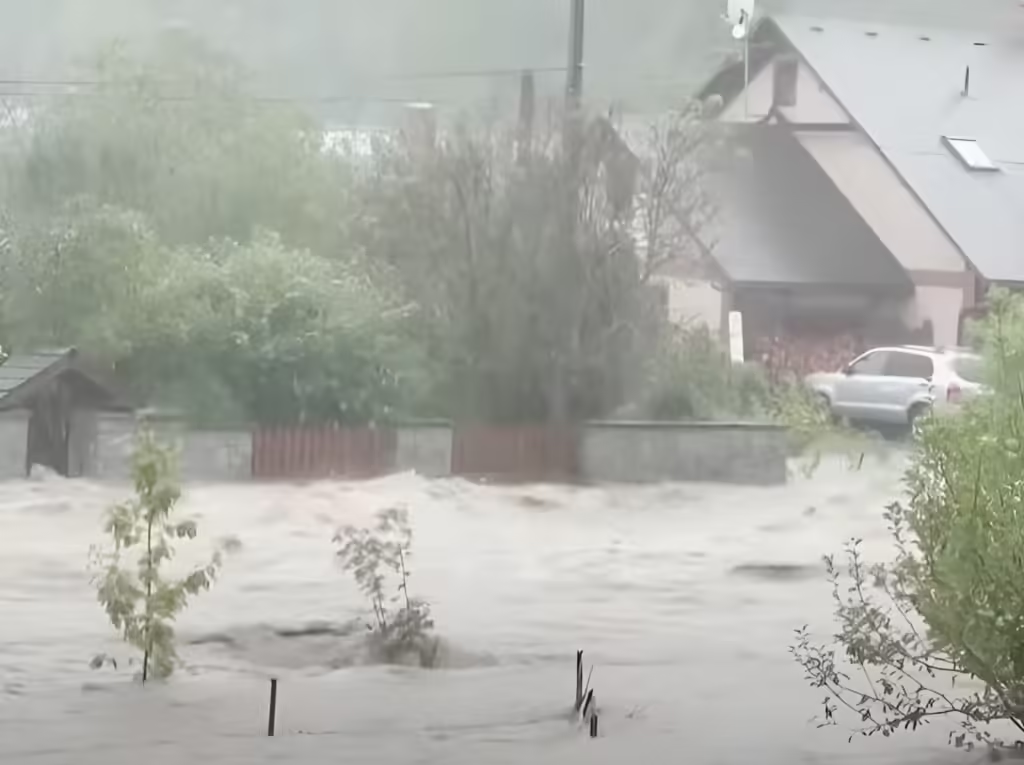September 16, 2024
Recent typhoons have left a trail of destruction across Asia and parts of Europe, highlighting the growing threat of extreme weather events driven by climate change. Two major storms, Typhoon Binka and Typhoon Yagi, have wreaked havoc in several countries, claiming hundreds of lives and displacing countless others.
Typhoon Binka Hits Shanghai, Strongest Storm in Decades
This week, Typhoon Binka made landfall in Shanghai, marking the most powerful storm to hit China’s financial hub in over 70 years. More than 400,000 residents were forced to evacuate as the storm battered the city of 25 million. Airports grounded hundreds of flights, train services were suspended, and highways shut down. Trees toppled, homes were destroyed, and streets were flooded, leaving the city in chaos.
Before reaching China, Typhoon Binka had already swept through Japan and the Philippines, claiming six lives. Now, with Shanghai bearing the brunt of the storm, recovery efforts are underway as the region grapples with the immense damage caused by this devastating event.

Typhoon Yagi Leaves a Trail of Destruction Across Asia
As if Binka wasn’t enough, China is still recovering from another storm, Typhoon Yagi, which struck earlier this month. Yagi has been dubbed the most powerful storm to hit Asia this year, killing at least four people and injuring 95 more in China alone. However, the destruction didn’t stop there.
Yagi tore through Vietnam, Laos, and the Philippines, causing widespread flooding. The death toll across these regions has risen to 287, with Myanmar particularly hard-hit, where 113 more lives have been lost. In addition, 320,000 people have been displaced, 66,000 homes destroyed, and entire communities washed away.
Countries like India, the UK, and Japan have stepped in to provide emergency relief, with India launching “Operation Sov” to deliver critical supplies to the affected regions. Donations have already surpassed $2.4 million in aid.
Elon Musk Sparks Controversy by Labeling Australian Government ‘Fascists’ Over New Misinformation Laws
Storms Spread to Europe: Storm Boris Hits Central and Eastern Europe
The disaster is not confined to Asia. Storm Boris is currently battering Central and Eastern Europe, causing destruction in Austria, Poland, Romania, and the Czech Republic. At least eight people have drowned as rivers have swollen beyond their limits, flooding towns and cities. Entire bridges have been swept away, power outages are widespread, and thousands of homes are without basic services.
The Climate Crisis: A Global Threat
While natural disasters like typhoons are not new, they are becoming more frequent and more severe. Scientists agree that climate change is a significant factor behind these intensifying storms. Rising temperatures contribute to warmer air, which can hold more moisture, leading to stronger, wetter storms. Storm surges are becoming higher, and rainfall totals, such as the record 400 millimeters seen during Typhoon Yagi, are becoming more common.
The cost of these storms is not only in property damage but in human lives. As the world continues to grapple with the effects of climate change, the urgent need for global action has never been clearer.
These recent disasters serve as a grim reminder that no region is immune to the impacts of a warming planet. From the bustling streets of Shanghai to the flooded towns of Europe, communities worldwide are being forced to confront the reality of climate change—one storm at a time.






























